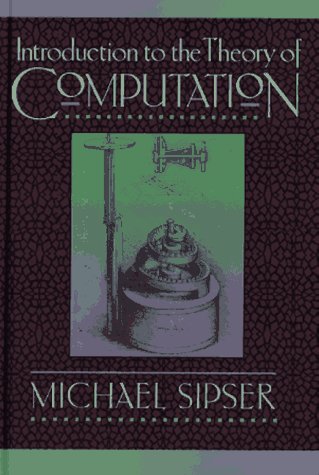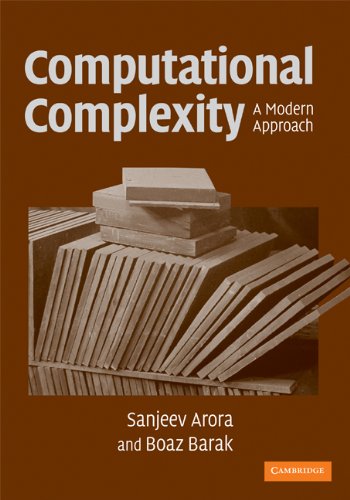Table of Contents
Course description
In this course, we explore the power and limitations of efficient algorithms. We compare basic models of computations such as finite automata, Boolean circuits, and Turing machines. The course illustrates the notion of computational intractability through the concept NP-completeness and the computational foundations of modern cryptography. Finally, we investigate the role of randomness and approximation in the modern theory of computing.
Prerequisites
The direct prerequisite for this course is CS 4820. We will also assume that everyone is familiar with the material in CS 2110, CS 3110, and CS 2800 — direct and indirect prerequisites of CS 4820. Concretely, you should remember your basic algorithms (e.g., dynamic programming and network flow), basic computability (e.g., Turing machines and undecidability of the halting problem), and basic NP-completeness. We expect everyone to be comfortable reading and writing mathematical proofs at the level of CS 4820.
Course material

 The textbook for the course is Computational Complexity: A Modern Approach by Sanjeev Arora and Boaz Barak. (For this book, drafts of all chapters are available here.) The book Introduction to Theory of Computation by Michael Sipser has useful reading material especially for topics earlier in this course. (Any edition of this book is fine).
The textbook for the course is Computational Complexity: A Modern Approach by Sanjeev Arora and Boaz Barak. (For this book, drafts of all chapters are available here.) The book Introduction to Theory of Computation by Michael Sipser has useful reading material especially for topics earlier in this course. (Any edition of this book is fine).
Grading
Your grade will based on weekly homework, class participation, two prelims, and one final exam. Each of these components will be given a weight in the following ranges:
- homework: 25%
- class participation: from 0% to 5%
- prelim 1: from 15% to 25%
- prelim 2: from 15% to 25%
- final exam: from 25% to 40%
For each student, we will determine weights in these ranges that add up to 100% and result in the best grade.
Piazza
We will be using Piazza as an online discussion forum. Piazza allows for open discussions of all course-related questions. You are encouraged to post any questions you might have about the course material. The course staff monitor Piazza closely and you will usually get a quick response. If you know the answer to a question, you are encouraged to post it.
By default, your posts are visible to the course staff and other students, and you should prefer this mode so that others can benefit from your question and the answer. However, you can post privately so that only the course staff can see your question, and you should do so if your post might reveal information about a solution to a homework problem. You can also post anonymously if you wish. If you post privately, we reserve the right to make your question public if we think the class will benefit.
Everyone who registered for the course by Thursday August 27 will be signed up at that time. If you have never used Piazza before, or if you did not preregister for the course, visit the Piazza CS 4814 page to sign up.
Piazza is the most effective way to communicate with course staff. Please avoid email if Piazza will do. Broadcast messages from the course staff to students will be sent using Piazza and all course announcements will be posted there, so check in often!
Homework
Homework is an important part of the course. We will have weekly homework assignments. All homework assignments will be posted on CMS. Most homework assignments will be due Wednesdays at 11:59pm.
Typesetting
Your homework submissions need to be typeset (hand-drawn figures are OK). The idea is that you first develop your solutions on paper and then type up their final form in a concise way. See typesetting resources for a list of typesetting software and references. Everyone who registered for the course by Thursday August 27 will be signed up to CMS at that time. If you would like to get added or dropped from CMS please contact .
Late submissions
You have eight late days. Late submission are graded only if you use your late days. You can use at most four late days per homework. If you are unable to submit your homework because of extenuating circumstances (medical or family emergency), contact an instructor beforehand.
Collaboration
You can collaborate with other students in the course and exchange ideas about homework. However, you are not allowed to share written notes about homework in any form. In particular, you need to write up your homework submission completeley on your own. Your submission has to acknowledge all students that you collaborated with on the homework. Failure to acknowledge collaborators is a violation of academic integrity.
For the homework, it is not admissible to use resources beyond course material and student discussions. (In particular, you may not Wikipedia.) Using such resources will in general result in point reduction. If you do end up using them, you absolutely need to reference them. Failure to reference outside resources you consulted is a violation of academic integrity.
Topics
- Computability and Logic
- Gödel’s completeness and incompleteness theorems
- Church–Turing thesis, universality
- explicit undecidable problems, diagonalization
- Complexity
- time and space bounded computation
- P vs NP, NP-completeness, reductions
- hierarchy theorems, relativization
- Boolean circuits
- probabilistic and quantum computation
- Finite Automata
- regular expressions
- state minimization
- Applications
- cryptography and machine learning
Course Material Copyright
Course materials posted on this website, piazza, or CMS, are intellectual property belonging to the author. Students are not permitted to buy or sell any course materials without the express permission of the instructor. Such unauthorized behavior constitutes academic misconduct.
Academic Integrity
Any violation of academic integrity will be severely penalized. You are allowed to collaborate on the homework to the extent of formulating ideas as a group. However, you are expected to write up (and understand) the homework on your own, and you should acknowledge the names of the students with whom you collaborated.
From Cornell’s code of academic integrity:
Absolute integrity is expected of every Cornell student in all academic undertakings. Integrity entails a firm adherence to a set of values, and the values most essential to an academic community are grounded on the concept of honesty with respect to the intellectual efforts of oneself and others. Academic integrity is expected not only in formal coursework situations, but in all University relationships and interactions connected to the educational process, including the use of University resources. […]
A Cornell student’s submission of work for academic credit indicates that the work is the student’s own. All outside assistance should be acknowledged, and the student’s academic position truthfully reported at all times. In addition, Cornell students have a right to expect academic integrity from each of their peers.